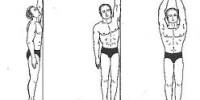The benefits of meditation are increased intuition and clarity. That includes a sense of what it right for us at any particular time. There are many approaches to better health. It is right to use the methods that work for you when they are appropriate. Just as taking vitamins is useful and appropriate in one circumstance; it can cause disharmony or ill-health if used in excess or at the wrong time. This greater clarity of feeling and sense helps you to apply these approaches or methods appropriately.
Meditation does have healthy side effects. Through sitting quietly, relaxing, balancing of the breath and its flowing through the body; and by taking on the “quiet open mind”, there is a greater mental and spiritual balance and harmony. This is reflected in greater peace, relaxation, and harmony within the body. Better health is found in the integration of body, mind, and spirit; and meditation aids in the process.
Meditation help your health:
Stress: Meditation can help prevent stress and slowly release pent up stress.
Make better decision: With daily meditation, you have a calm approach and sharpened alertness and you are now better equipped to make better decisions.
Relieve pain
Meditation had the effect of reducing activity in an area of the brain that processes pain stimuli, while increasing activity in areas where the brain stores its experience of pain and comes up with coping mechanisms.
Relaxation
Meditation has always been touted as a way to relax, but a study last year found evidence to show that it really does work. Increased neuron connectivity was found in parts of the brain that were important for regulating emotional behavior and dealing with conflict.
Happiness: All these positive traits will only heighten your sense of happiness. Daily meditation ensures to fight stress and control rage hence releases happiness hormones.
Improve memory
People who meditate in the long-term have “significantly larger” hippocampi – the part of the brain associated with memory and learning – a study found. The research on 44 people, half of whom had practised meditation for between five and 46 years, found those who had meditated also had increased grey matter.
Reduce blood pressure and stroke risk
Researchers who tracked 201 people as they underwent either Transcendental Meditation or health education classes found that those who meditated had lower blood pressure and a 47% reducation in strokes, deaths and heart attacks, which they calculated together as one result.
Relieve pain
Meditation can have greater pain relieving effects than morphine, a study earlier this year found. Researchers found that just one hour of meditation training could reduce pain by nearly half.
Study participants’ brain activity was examined as they were subjected to a painful heat-emitting device applied to one of their legs. They were monitored both before and after meditation training and pain ratings were reduced by between 11 and 93 per cent while meditating.
Meditation had the effect of reducing activity in an area of the brain that processes pain stimuli, while increasing activity in areas where the brain stores its experience of pain and comes up with coping mechanisms.
Relaxation
Meditation has always been touted as a way to relax, but a study least year found evidence to show that it really does work. Increased neuron connectivity was found in parts of the brain that were important for regulating emotional behaviour and dealing with conflict.
















